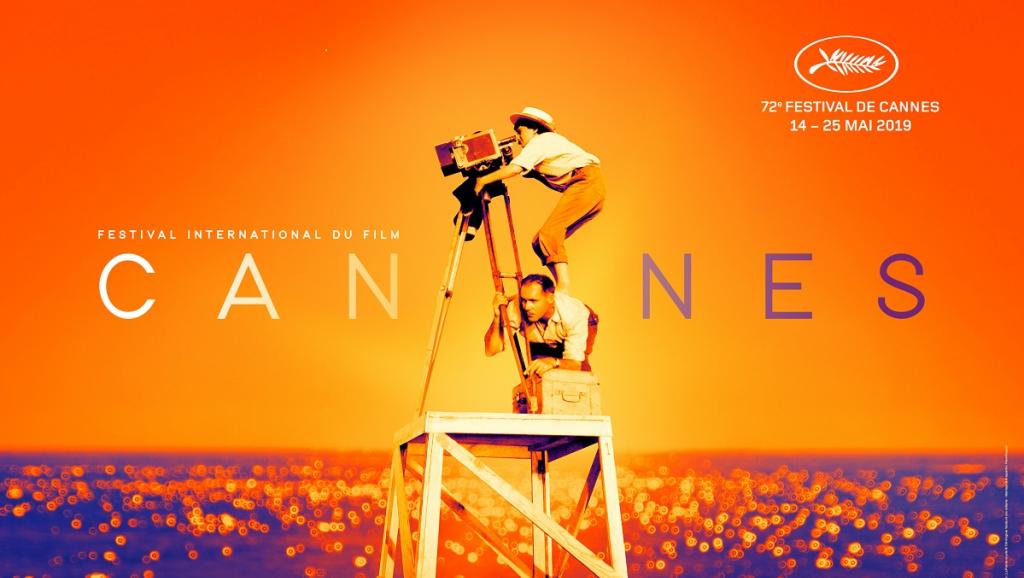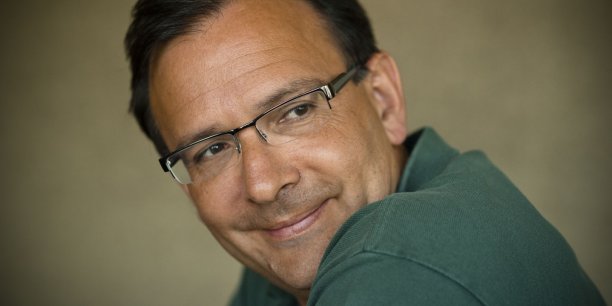 There is still no official award for Best Soundtrack at the Cannes Film Festival. Neither at the Berlinale, nor at Venice. But Cannes, the biggest and one of the oldest film events in the world, has always benefited from the respect and excitation from all trades in the film industry. And even if there is no award either for the photographers or the editors, there is more light shed on their work than on that of any composer, living or dead. When asked about it, or when someone like Isle of Dogs composer Alexandre Desplat makes a comment about it, Thierry Frémaux, General Delegate of the Festival, dodges the question. But still, the question of music in Cannes is like an elephant in a room. The most pressing thing film composers need right now, is a form of recognition of their work at such an international celebration of cinema. Even if it is not officially recognised with a prize given at the closing high mass at the Palais des Festivals. For years now, Sacem (Authors’ note: Société des auteurs, compositeurs et éditeurs de musique, the French professional association collecting payments of artists’ rights and distributing the rights to the original songwriters, composers, and music publishers) has been fighting and getting louder and louder for this cause, and although the long-fought battle is not over yet, and will probably still last for another couple of years, the Cannes Film Festival seems to have lent an ear to the cause. Jean-Noël Tronc, head of Sacem, told us that we are in such a situation today because there is a fundamental “background work” to do so that composers stop being victims of ridiculous popular beliefs and get the recognition they are due. “In terms of copyrights, the composer is the author of the film, in the same way as the director and the screenwriter are, Tronc told us. Often, and especially when it comes to first or low-budget films, the writer and the director are the same person, however, it is way more unusual for a composer to be the director, and vice versa.” Indeed, out of the hundreds of feature films shown this year in Cannes, only Bertrand Bonello’s Zombi Child, an unconventional take on the Haitian origins of the living dead myth—with hypnotic ambient pieces inspired by 1980s horror films and John Carpenter—and Lav Diaz’s four-and-a-half-hour political sci-fi film Ang Hupa featured an original score composed by their writer/director. Both films were presented at the Directors’ Fortnight, an independent selection.
There is still no official award for Best Soundtrack at the Cannes Film Festival. Neither at the Berlinale, nor at Venice. But Cannes, the biggest and one of the oldest film events in the world, has always benefited from the respect and excitation from all trades in the film industry. And even if there is no award either for the photographers or the editors, there is more light shed on their work than on that of any composer, living or dead. When asked about it, or when someone like Isle of Dogs composer Alexandre Desplat makes a comment about it, Thierry Frémaux, General Delegate of the Festival, dodges the question. But still, the question of music in Cannes is like an elephant in a room. The most pressing thing film composers need right now, is a form of recognition of their work at such an international celebration of cinema. Even if it is not officially recognised with a prize given at the closing high mass at the Palais des Festivals. For years now, Sacem (Authors’ note: Société des auteurs, compositeurs et éditeurs de musique, the French professional association collecting payments of artists’ rights and distributing the rights to the original songwriters, composers, and music publishers) has been fighting and getting louder and louder for this cause, and although the long-fought battle is not over yet, and will probably still last for another couple of years, the Cannes Film Festival seems to have lent an ear to the cause. Jean-Noël Tronc, head of Sacem, told us that we are in such a situation today because there is a fundamental “background work” to do so that composers stop being victims of ridiculous popular beliefs and get the recognition they are due. “In terms of copyrights, the composer is the author of the film, in the same way as the director and the screenwriter are, Tronc told us. Often, and especially when it comes to first or low-budget films, the writer and the director are the same person, however, it is way more unusual for a composer to be the director, and vice versa.” Indeed, out of the hundreds of feature films shown this year in Cannes, only Bertrand Bonello’s Zombi Child, an unconventional take on the Haitian origins of the living dead myth—with hypnotic ambient pieces inspired by 1980s horror films and John Carpenter—and Lav Diaz’s four-and-a-half-hour political sci-fi film Ang Hupa featured an original score composed by their writer/director. Both films were presented at the Directors’ Fortnight, an independent selection.
Last year, a new event debuted in Cannes, called “A Life in Soundtrack,” with an honorary award given to Desplat. This celebration of film music, past and present, falls within the Official Selection, in the Cannes Classics section, the only possibility to give space to such a topic within the Festival’s frenzy. It may not be much, but we would rather see it as a blessing for film music, which finally gets recognition, not only for its history, inseparable from the history of moving images, but also for the importance of its aesthetic and artistic values. For All About Yves (Directors’ Fortnight) composer Bertrand Burgalat, a French musician, singer, producer and arranger who started composing for films some twenty years ago, “when Sacem says that film scores have to be reassessed, they are absolutely right. It is in the films’ interests.” The original score for this little comedy gem—a wannabe Soundcloud rapper loser becomes best friends with his smart fridge Yves, and the appliance ends up composing his songs and turns him into a star—is the latest of several collaborations between Burgalat and director Benoît Forgeard.
The composer sure is a man of long-lasting collaborations, and he cannot be clearer when talking about the importance, for the score’s value, of long and fertile relationships between a composer and a director: “I’ve worked with directors and producers who somehow disdained the score, and often, when they can’t handle that, they barely can handle anything. As a result, those films were disasters. Often, bad films feature bad scores. I think that the original music’s worth is an excellent indicator of the finished film.” His idea is followed by Jean-Noël Tronc, who expresses the double regret that “it is too often these days that the topic of the composer/score intervenes downstream of the creative process.” This issue, other than being the result of a general indifference for this artistic dimension, also is financially underestimated: “It is not rare that a composer, man or woman, is being offered completely ridiculous order amounts, which is a double mistake. First, because it is unjustified; second, and more importantly, because one might feel it in the quality of the finished work.”
On May 20, in the Buñuel theatre of the Palais, the 2019 edition of the Cannes Film Festival welcomed one of the most eminent French filmmakers and film historians, Bertrand Tavernier, to be the recipient of the second “A Life in Soundtrack” award for his contribution to the rediscovery of classic French original scores, in particular those from the 1930s to the 1960s. During this era, film music in France became recognised as a whole artistic entity but most composers did not have the opportunity to record their works, their scores being thus unavailable on album or in any way separately from the film, even until this very day.
Tavernier’s latest (still in progress?) work is an exuberant piece of cinema history, My Journey(s) Through French Cinema, which was at first a three-hour documentary released in 2016, and which was completed later by an 8-episode series. Just before the director was awarded, a revised and updated hour-long editing of all the sequences about film music from his Journey(s) was screened, including rare behind-the-scenes footage, interviews with composers and a delightful commentary by Tavernier, who presents and analyses the work of forgotten French composers from both a historical, personal and emotional point of view.
Tavernier’s efforts in rediscovering and sharing the legacy of French film music are a continuation of the work done by François Truffaut in the late 1970s, when the director reproduced some scores composed by Maurice Jaubert, who died during World War II and who never had the chance to record or even to write down any of his scores (which means that they only exist on film). Scores from classic French films of the 1930s such as L’Atalante had been reinterpreted and inserted in Truffaut’s Oscar-nominated historical drama The Story of Adèle H. as well as in his three following films. The Cannes screening of Tavernier’s unreleased Journey(s) episode was followed by a concert of Bruno Fontaine (pianist) and Isabelle Georges (singer), who interpreted some of the compositions heard in the documentary and gave reinterpretations of better-known pieces, like Sans toi, the heartbreaking song written by Agnès Varda and composed by Michel Legrand for Cléo From 5 to 7.
But all of this is not just a simple celebration of film music at the world’s biggest cinema festival. Rare occasions like this one have to be seized, and Sacem, along with Bertrand Tavernier and other guests, take it as an opportunity to make the audience, professionals and journalists aware of the niche situation in which film music has been stuck for decades and why it is important to get it out of it. Sacem just became an institutional partner of the Cannes Film Festival, and Jean-Noël Tronc is positive that “a Golden Palm [for Best Film Score] would generate an educational effect, which is absolutely essential not only in France, but worldwide.” Bertrand Tavernier, a classical music connoisseur and jazz aficionado, who has worked actively with the likes of film music veterans Philippe Sarde and Antoine Duhamel and did occasional collaborations with American composers such as Herbie Hancock, Ron Carter and Marco Beltrami in his 50+ years of career as a film director, highlights this very strong educational potential in his documentary series. The head of Sacem agrees with this, adding that when a composer or someone like Tavernier gives masterclasses about film music, “it opens up the chakras.” And although we can observe that things are beginning to change, in Cannes and elsewhere, patience is required for film music to come to complete acknowledgement and recognition. In the meantime, there still is a whole bunch of chakras to open.
Valentin Maniglia & Marine Wong Kwok Chuen
N.B.: “A Life in Soundtrack” was supported by Sacem for the Cannes Film Festival. The interviews with Bertrand Burgalat and Jean-Noël Tronc were organised thanks to Les Rencontres de la Sacem.



